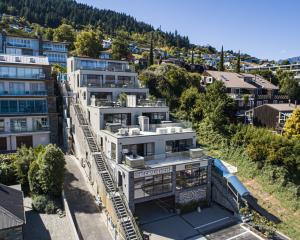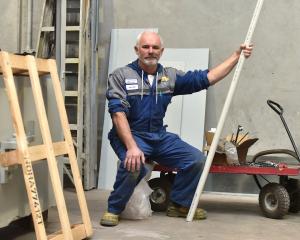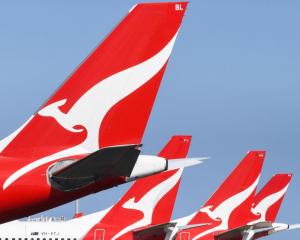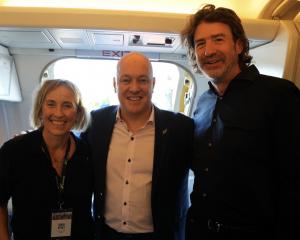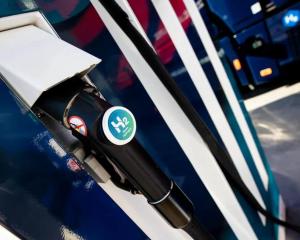City Forests proved to be the surprise package when Dunedin City Holdings yesterday released its annual report for the year ended June.
DCHL accounts showed an improved revenue of $233 million for the year (up 8.9%), an improved operating profit of $23.7 million (up 70.5%), an improved reported profit of $26.3 million (up 38.4%), larger operating cash flows and an increase in the total interest and dividends paid to the parent - the Dunedin City Council.
Usually, the electricity and infrastructure companies provide DCHL chairman Paul Hudson with the annual highlights but yesterday, it was the turn of City Forests to shine.
The largest change in financial performance in the year came from City Forests, Mr Hudson said at a media briefing.
"The economic climate for the company changed markedly over the last six months of the year and export log volumes to our principal South Korean customers increased, to take advantage of this."
Importantly, the company started carbon trading under the New Zealand Emissions Trading Scheme.
Sales of $3.2 million were achieved for the year and a further $500,000 of carbon was sold for periods over the next three years, he said.
Carbon trading would continue to contribute strongly to the revenue of City Forests.
The forest operations ensured the group as a whole was "highly carbon positive", Mr Hudson said.
In the last year, the group eliminated a further 81,202 tonnes of carbon dioxide from the environment by accumulating it in the forest.
The annual accounts showed City Forests revenue for the period grew by more than 50% to $51.1 million, helped by a $6.2 million revaluation of the forest assets, nearly double the revaluation of the previous corresponding period.
Mr Hudson said the revaluation was almost entirely due to the trees getting older.
The company was dependent on global prices and for a sustained turnaround in the company, a recovery in the United States market was needed to increase the prices for sawn timber, Mr Hudson said.
"There are no signs or signals of that happening yet. We do always have the option of not milling," he said.
Commenting on the performance of the other companies in the group, Mr Hudson said the regional economy had been growing at a slower rate.
The network growth of Aurora Energy had continued, but at a lower rate.
The performance of that company had once again provided a strong base to the overall group performance.
Delta Utility Services, the water, waste-water and general contracting operation, remained the largest company in the group by revenue and improved its cash flow generation.
Construction of the "Flute" fibre optic network in Dunedin's central city area had continued and the group had placed much effort and resources into the application to the Government to be part of the national broadband project, Mr Hudson said.
Citibus improved its revenue during the year but margins - which had been extremely poor in the tour bus industry - yet again decreased in size.
It was unlikely Citibus would invest in its tour fleet in the next year.
Taieri Gorge Railway continued to invest heavily in its future as it renovated carriages, Mr Hudson said.
Dunedin International Airport had earlier reported a higher profit than forecast.
Total payments in cash to the council during the year were substantial, at $24.2 million.
"The DCHL board continues to pursue opportunities for growth where it sees the potential to develop or extend existing businesses.
"Underlying this strategy is the desire to continue to produce a reliable cash benefit to the DCC."
Large opportunities would continue to be placed before the council for support, Mr Hudson said.
However, should any large proposals be discussed with the council, the effects on the whole group would need to be considered.

